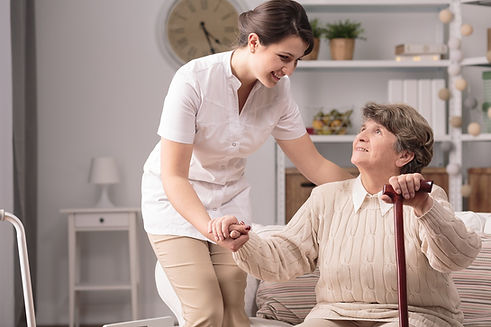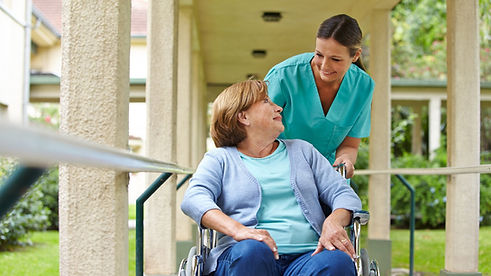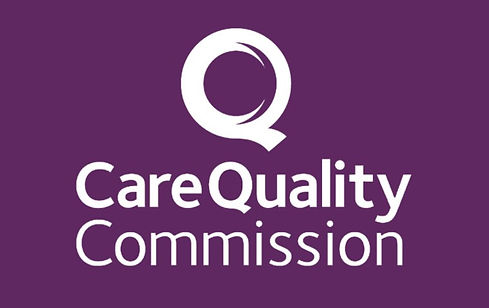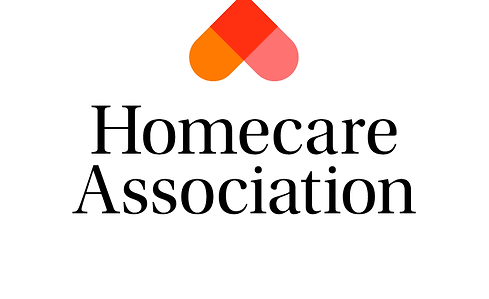COMPANIONSHIP
Support with social interaction
As a family run team of carers, we care for the little things in life that matter to you. Our team of care professionals will provide you with warmth and company; they are available seven days a week to make sure you are okay and support you with whatever you need.
Everyone in our team have been thoroughly vetted and references checked. They are trained, fully qualified, competent, skilled and experienced to fully support you at home.

Give Us A Call To Arrange Your Support Today 020 3489 7099

We ask you to tell us what matters to you and match you with one care team member. This leads to forming a long-term meaningful relationship to help you do the things that matter to you.
This may include:
-
Errands
-
walking your dog with or for you
-
Laundry and Ironing
-
Cleaning
-
Meal preparation
-
Visiting community and leisure centres
-
Accompanying you to the doctor and hospital appointments

WHAT A COMPANION CAN DO FOR YOU:
A three cord strand is not easily broken
Your companion is a friendly face who matches your personality, share your interests, and will talk, help you to get around and about and help you to take an active part your daily life.
At the Three Cord Care, we have developed our care team to have the right values, skills and knowledge to support you with your personal life. We encourage you to speak to our care team member assigned to you about what is important to you, helping you to develop a shared understanding of what matters to you. Such things as personal preferences, hobbies and hopes go beyond the typical care provided.
Companionship care is designed so that you can lead a wonderful life from the comfort of your own home.
What would you like us to help you with? 020 3489 7099

GETTING OUT AND ABOUT
Our care professionals are on hand to assist you with getting out and about ranging from providing you with rides, walking or navigating public spaces. They will discuss with you to find out what matters to you, your interests and preferences.
For many of our service users getting out and about reduces feelings of isolation, depression and fosters a sense of belonging and purpose.

NEED HELP WITH YOUR SHOPPING?
Our care professionals are on hand to assist you with shopping online, at the local supermarket or a nearby corner shop. As a family run care provider, we base the quality of our services on the ethos that: What matters to you matters to us. We make sure that you receive high quality care and support in all we do.
We uphold the traditional values of honesty, integrity, dignity and community. We demonstrate that we care in the way we work. As a local care provider you will see us everyday and we will respond to your every need.
FULLY REGULATED BY
THE CARE QUALITY
COMMISSION (CQC)
For those who are new to health and social care, you may not be aware of the regulations and work of the Care Quality Commission.
Created by the Health and Social Care Act (HSC Act) 2008, the CQC ensures that health and social care services provided to people are safe, effective, compassionate, of high-quality, and encourages care services to improve.
Our personal care services are fully monitored, inspected and regulated by the independent regulator of health and adult social care in England, the Care Quality Commission (CQC).



PERSONALISED CARE THAT MEETS YOUR UNIQUE NEEDS
A three cord strand is not easily broken
Experienced and trained personal carer
Personalised support plan
Employment Support
Benefit Support

WHY IS REGULATION IMPORTANT?
The inspection and regulation of health and social care services in England, ensure that the health and social care provided is safe, effective, compassionate and of high quality. The regulator works to:
Protect vulnerable individuals, drive improvements in healthcare services
Build public trust in the health and social care system by upholding standards of safety and quality
Promote transparency and accountability
Influence policy development in the health and social care sector
What does regulation mean?
It means that the regulator ensures that we meet the requirements of regulations of the Health and Social Care Act 2008, 2014 and the Care Act 2014, including the fundamental standards of care
How does regulation affect your care?
The external regulatory body monitors health and adult social care in England and makes sure that services provided to people are safe, effective, compassionate, and of high quality.
How does the membership of the Homecare Association improve your care?
Being a member of the Homecare Association, we agree to provide high-quality, sustainable homecare and to promote the independence, preferences, dignity and privacy of our service users, their families and carers.
We also work towards the association’s Code of Practice for homecare providers.
WHAT ARE THE BENEFITS OF REGULATION IN HEALTHCARE?
Accountability and Transparency
Regulations promote accountability and transparency in the care and support provided to individuals, fostering a culture of openness and trust.
Health and social care providers are required to adhere to the minimal fundamental standards of care and undergo regular inspections. This ensures that they are held accountable for their actions, driving continuous improvement, innovation and learning.
Quality and Consistency
Regulations ensure the safety, quality and consistency of care and support provided to individuals.
Establishing clear standards and expectations, organisations must work toward them. The Regulator (CQC) will inspect to ensure that standards and expectations are being followed, and ratings are awarded and published accordingly.
Public Protection
Regulations set standards for health and safety practices, minimising the risk of harm, injury and neglect to people receiving care and support.
Establishing clear standards and expectations, organisations must work toward them. The Regulator (CQC) will inspect to ensure that standards and expectations are being followed, and ratings are awarded and published accordingly.
Legal Compliance
To ensure that rules and guidelines set out by legislation, regulations and standards established for the health and social care sector are being followed.
Person-Centred Practice
“People will get more control over their own health, and more personalised care when they need it” (The NHS Long Term Plan).
Person-centred practice begins with the understanding that each person is an expert in their own life. It ensures that care and support are not provided to “fix” the service user. A benefit of regulation is the practice of an approach where an individual actively participates in the design and delivery of their own care. It is their life.
Improved Outcomes
Regulations play a crucial role in improving service user outcomes by establishing standards which ensure the delivery of safe, effective and person-centred care.
Establishing clear standards and expectations, organisations must work toward them. The Regulator (CQC) will inspect to ensure that standards and expectations are being followed, and ratings are awarded and published accordingly.

